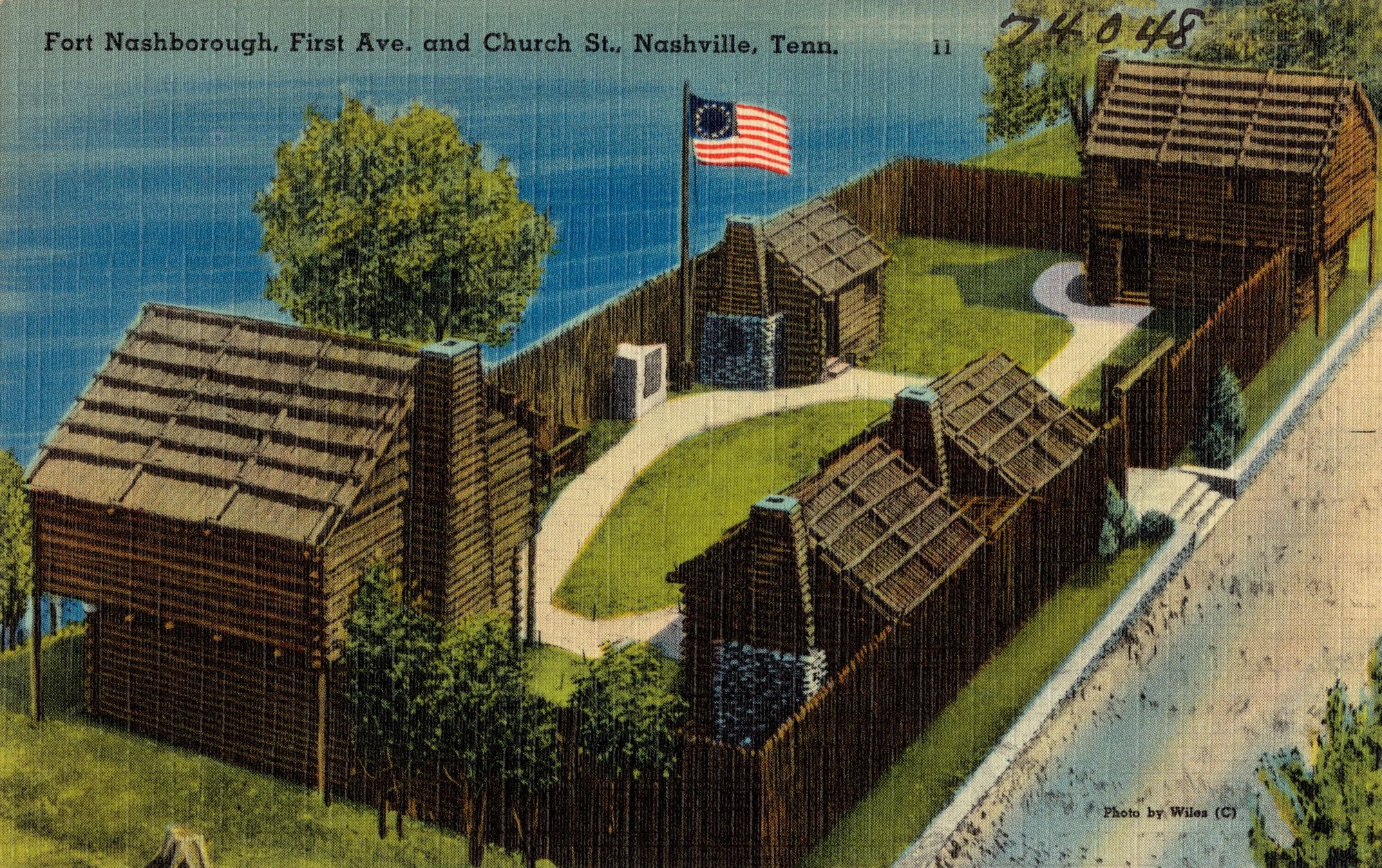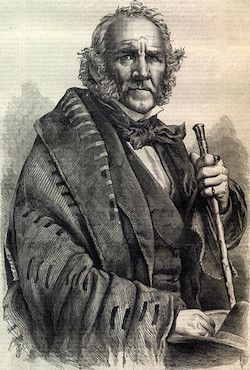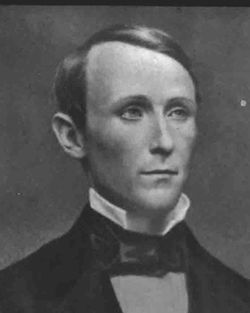
Polite, a Poser, or a Pain in the…
A tour through some of Tennessee History's more colorful characters
Nashvillians have a well-deserved reputation for hospitality and friendliness, but from the get-go, we’ve shown the world we can lead with our elbows, too. It goes without saying that James Robertson and the other original settlers were no wimps. It’s a wonder how they got here by foot and on flatboats, felled trees, built houses, cleared fields, planted crops, dealt with bitter cold and blistering heat, and survived constant Indian attacks fueled by America’s enemies the French and the British. They didn’t get all that done through the use of please and thank you. They got it done because they were tough as hickory wood.

Hence Andrew Jackson’s nickname “Old Hickory.” He came to Tennessee shortly after it was first settled. Jackson’s hospitality at the Hermitage was famous but you did not want to cross him. He won duel after duel with those who he felt impugned his honor. Woke revisionist historians depict him as a war criminal, but you’ve got to look at him as more of an early Rudy Giuliani: Jackson came in and did the dirty work necessary to pave the way for civilization. He was a heck of a president in contentious times, the first populist to win the office, and a hero to the average citizen not just for licking the British in the Battle of New Orleans, but also for fighting the unconstitutional central bank that was set up to favor the rich at the expense of the common man.
And if Donald Trump wants to complain about the media, well buck up, Buttercup. No political figure in American history has had to fight more slander and malice from media pundits than Andrew Jackson. His opponents fastened on a dubious divorce by his beloved wife Rachel from her abusive first husband. The newspaper writers’ withering, mean-spirited, constant harassment of Rachel and Andrew over this was so extreme that it is said literally to have killed her. Jackson went to the White House a widower.

Jackson was just one of many who put Nashville on the map. Montgomery Bell is another. Today Nashvillians know the name for the state park at Dickson and for the elite boys’ school that bears his name. But he wasn’t so honored because he was mild-mannered. While Nashville was growing he was combing the wild countryside of Middle Tennessee for iron ore deposits. He built kilns and furnaces all over, becoming the pre-eminent producer of iron at the time. Visit Narrows of the Harpeth State Park to see yet today Bell’s most amazing technological achievement. There, so early as 1819 no less, with a brilliant black foreman and a cadre of slaves, Bell blasted a 290-foot tunnel through solid rock from one curve of the Harpeth River to the another to power one of his wrought iron foundries. Towns you can visit today like Cumberland Furnace and Vanleer among others are a lasting testament to his achievements.
Rich, brilliant, and a lifelong bachelor, Bell had some elbows, too. At a time when interracial relations were socially acceptable only as slave and master, Bell lived side by side with his slaves and legend has it, had a common law marriage with a slave woman that produced children, descendants of whom can still be found around Bell Town above Kingston Springs. He eventually freed his slaves and paid for those who wanted to return to Africa. Perhaps it is no random coincidence that it was in an A.M.E. church at Kingston Springs that Stokely Carmichael was elected to lead the Student Nonviolent Coordinating Committee (SNCC). And that school in Nashville? Bell intended that his funds help educate poor boys. Hah!

How about Sam Houston? Just about everyone knows that Sam Houston was president of the Republic of Texas and that the great Texas city is named for him. But did you know that before all that, Sam Houston was elected governor of Tennessee, the youngest person ever to hold that office? Did you know that before that, he was orphaned young and kicked out of the house in East Tennessee by his unsympathetic older brothers, that he was a teacher and founded a school, AND at times he lived among the Indians as an honorary chieftain in Arkansas? That he was a huge man for the time, over six feet tall, and known for walking the streets of Nashville in a magnificent, multicolored full length overcoat? Or that he fell in love with a young girl named Eliza Allen from Gallatin and won her hand in marriage by the prestige he gained as governor?
The marriage didn’t turn out too well. On their first wedded night, Eliza ran screaming from the Governor’s Mansion and refused ever to speak to him – or of him – again. No one knows exactly why. But it was a humiliation from which Houston did not recover quickly. He resigned the governorship, went back to Arkansas to live with his squaw there, and reportedly drank a lot. Who can blame him? The amazing thing is, he eventually showed up in Texas, helped win its independence and set up the Republic, and when it became a state, served as its first governor. Then when the Civil War broke out and Texas voted to join the Confederacy, he said to heck with this, I didn’t work so hard to bring Texas into the Union only to have it leave on my watch, and he resigned the governorship. So Houston is not only the only American ever to serve as governor of two states, but also to resign from both offices. Needless to say, that is a record not likely to be matched.
So no. Early Nashvillians like Jackson, Bell, and Houston were no wimps. And neither was William Walker, the Grey-Eyed Man of Destiny.

William Who?
Hardly remembered now, it can be argued that William Walker was the most accomplished Nashvillian of all time. Ever. Hands down. And the only native Nashvillian we’ve talked about so far. A child prodigy, he graduated from the University of Nashville by age 14. He then earned a medical degree at U. Penn. He studied further in Europe at Edinburgh and at the Sorbonne. Unfortunately he did not learn his trade well enough to save his beloved sickly mother back home in Nashville. Devastated by her death, he moved to New Orleans where he studied law, set out his shingle, gained notoriety as editor of one of the daily papers (a colleague of Walt Whitman), and fell in love with a deaf-mute girl named Ellen Martin. Alas, she died of yellow fever, once again devastating the young Walker. He disappeared for a year, then turned up in San Francisco, beginning a series of adventures too numerous to recount that culminated in his becoming president of Nicaragua.
Yes, president of Nicaragua. His conquest of the nation made him arguably the most famous American alive in the 1850s, regularly on the cover of the New York Times and every other paper that could get an update on him, and the honoree of parades in every major city he visited during his interregnum.
Unfortunately, his position in Nicaragua put him at odds with Cornelius Vanderbilt, who at the time wanted to build a canal across the country for the same purpose as the later Panama Canal. Yes, that Cornelius Vanderbilt, the one for whom Nashville’s largest college is named. Vanderbilt rallied the royalist opposition to Walker and ultimately had him ousted from office. Walker’s reputation ever since has been as an “imperialist,” but the fact is that he was quite popular in Nicaragua as a democracy-minded president, instituting land reform and universal suffrage and setting up a school system. Imagine how the history of Central America might have been different had Walker succeeded in establishing an American-style democracy in Nicaragua? We’ll never know thanks to Cornelius Vanderbilt. Walker was assassinated on a beach in Honduras by royalist forces as he tried to make his way back to Nicaragua. He is buried there. The concurrent outbreak of the Civil War overshadowed his legacy.
Now think about these four Nashvillians – Jackson, Bell, Houston, and Walker, just four men who were super-achievers in Nashville’s first half century. Think of all they overcame and all they accomplished. And think about what we Nashvillians are doing with our own lives today. Can you see any one of these fellows wearing a face diaper? Seeking a safe space? Questioning their “gender?” Living on a government check? Waiting for a WeGo bus to get where they were going???
Not likely.
Great Nashvillians have never been weak-kneed and they’ve never been posers. They were pioneers. They were non-conformists. They were not the type to pick an avatar and load it with what they wished to be. They ventured; gain followed. They were real people who had warts and shortcomings but who went out and made things happen, sometimes winning, sometimes losing, but never, short of death, too lost to pick themselves up and keep on going. You can bet that using their elbows to reach the top of the heap, to many they were just a pain in the ashcan. Most likely, being from Nashville, they were usually a polite pain in the ashcan, but a pain to their detractors nevertheless because they were all as tough as hickory wood.
The essential question for Nashvillians today is, will we belie the hickory wood of our roots for the balsa wood of the post-Covid, twenty–first century American doldrums?
